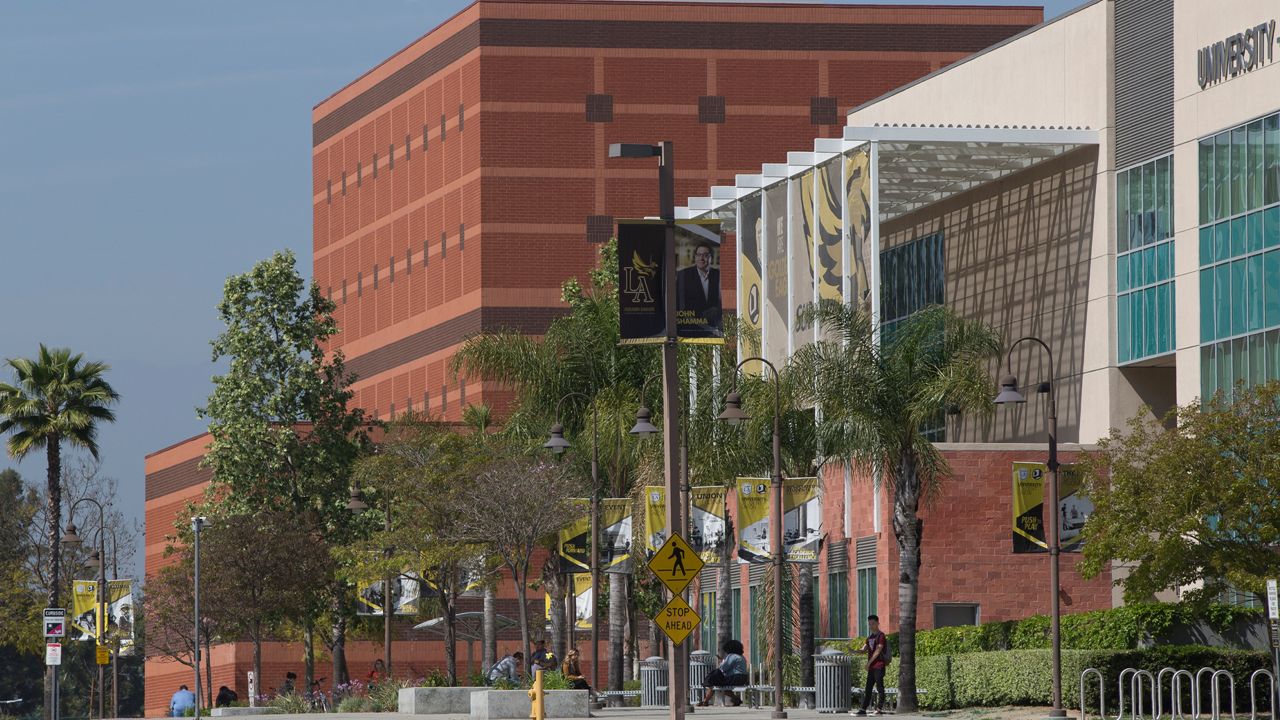SACRAMENTO, Calif. — With an assist from Sacramento State University cheerleaders and its mascot, Herky the Hornet, California state leaders swore in the first group of College Corps volunteers Friday. Students at 46 colleges and universities throughout the state are participating in the program that gives them $10,000 toward their degrees by volunteering to work with organizations supporting K-12 education, climate action and food insecurity.
“We all want to be part of something bigger than ourselves,” California Chief Service Officer Josh Fryday told an enthusiastic crowd at Sacramento State, where 300 of the program’s first 3,200 students had gathered to be officially sworn in. “We want to be part of something special and unique. And today is special for the state of California. It’s special for all you fellows that are about to begin what we hope is a career and a life of service.”
In the works since Gov. Gavin Newsom first took office almost four years ago, the College Corps is loosely modeled after the Peace Corps — the federal agency that pairs young volunteers with international community groups to promote cross-cultural understanding, education and economic development. It was born from the idea that Americans are “more traumatized, more polarized, more isolated” than ever, Gov. Newsom said.
“It seems like all of us are waking up every morning to find a crowbar to put in the spokes of the wheel of the other person to trip them up. It’s bad out there, and that leads to cynicism and anxiety, but you are the antidote,” he told a crowd that included College Corps participants from Sacramento State University and Sacramento Valley Community College.
The first volunteer program of its kind in the country was announced in February and launched this fall at almost 50 schools, including seven University of California campuses, 16 California State universities, 19 California community college campuses and four private schools.
“I’m a first-generation student whose family has never stepped foot in a college, and most haven’t even graduated high school,” said Yusbely Delgado Medrano, a senior at the University of California, Davis, who is one of the first College Corps fellows. “When my parents came home late after working day and night to provide for me and my younger siblings, I promised myself that I would pay it forward. But it’s hard to grab and be aware of the amount of opportunities that this country has to offer especially when we’re so busy trying to keep our heads above the water.”
The $10,000 students earn in return for volunteering is roughly equal to the amount a California student would receive in a Pell Grant, without the need to take on debt or work while in school.
Funded with $146 million the state legislature invested in 2021 to expand service opportunities through the state, the College Corps has three stated goals: Engaging college students in meaningful service opportunities that build leadership skills and civic responsibility; helping students from diverse backgrounds graduate college on time and with less debt; and supporting the work of community-based organizations focused on key local priorities.
Students volunteering as College Corps fellows are working with 600 different community organizations throughout the state. Each participant will serve a total of 450 hours over a full academic year, for which some students will also receive academic credit.
The first cohort began their service this fall. Among them are dozens of so-called “Dreamers,” or undocumented immigrants who were brought to the United States as children. They are eligible for College Corps through Assembly Bill 540, the California bill Gov. Gray Davis signed in 2001 to allow undocumented students access to in-state tuition at the state’s public colleges and universities.
The College Corps program is currently slated to run for two academic years, from August 2022 to July 2023 and August 2023 to June 2024.



